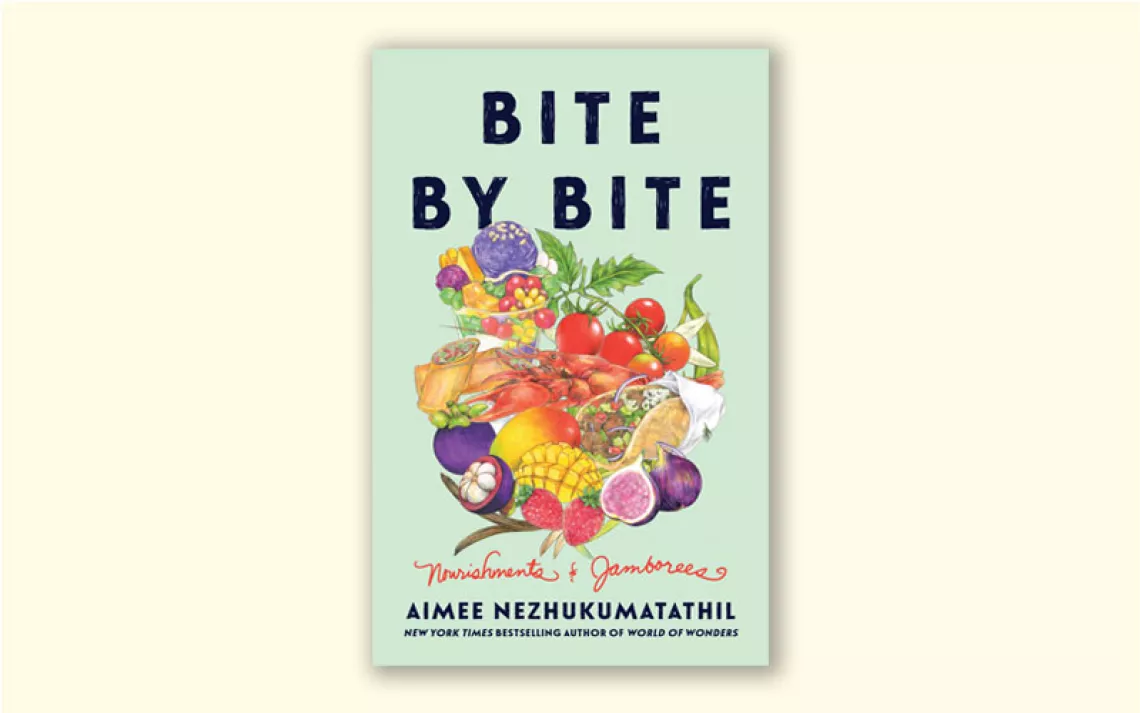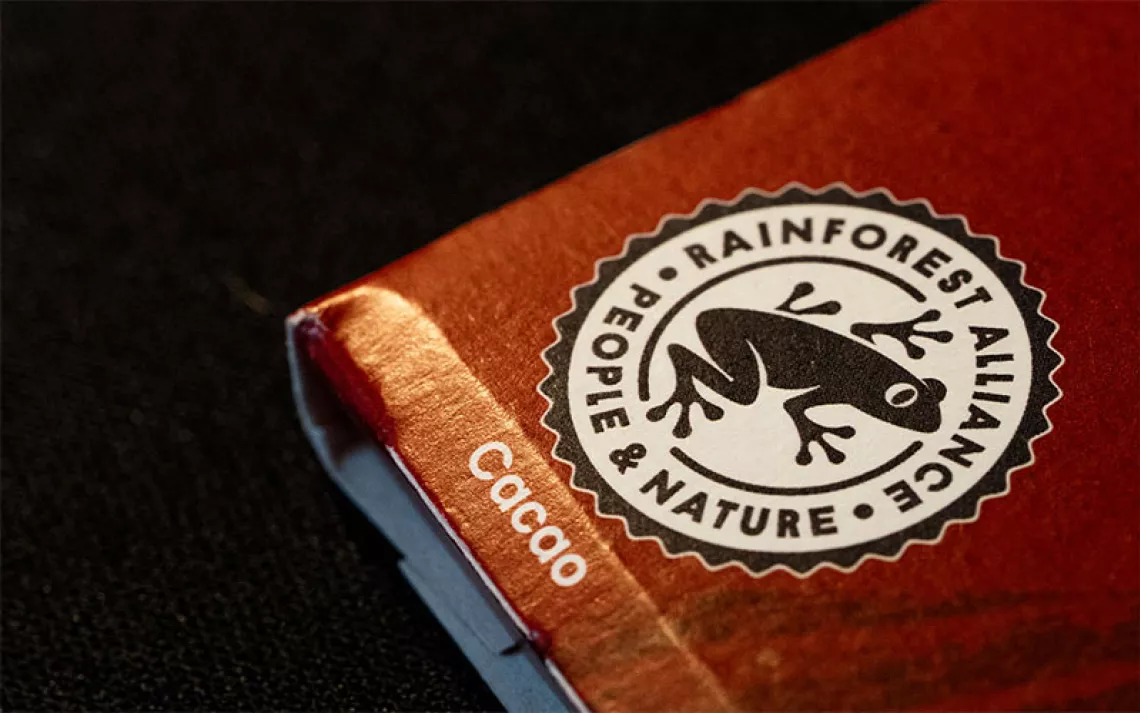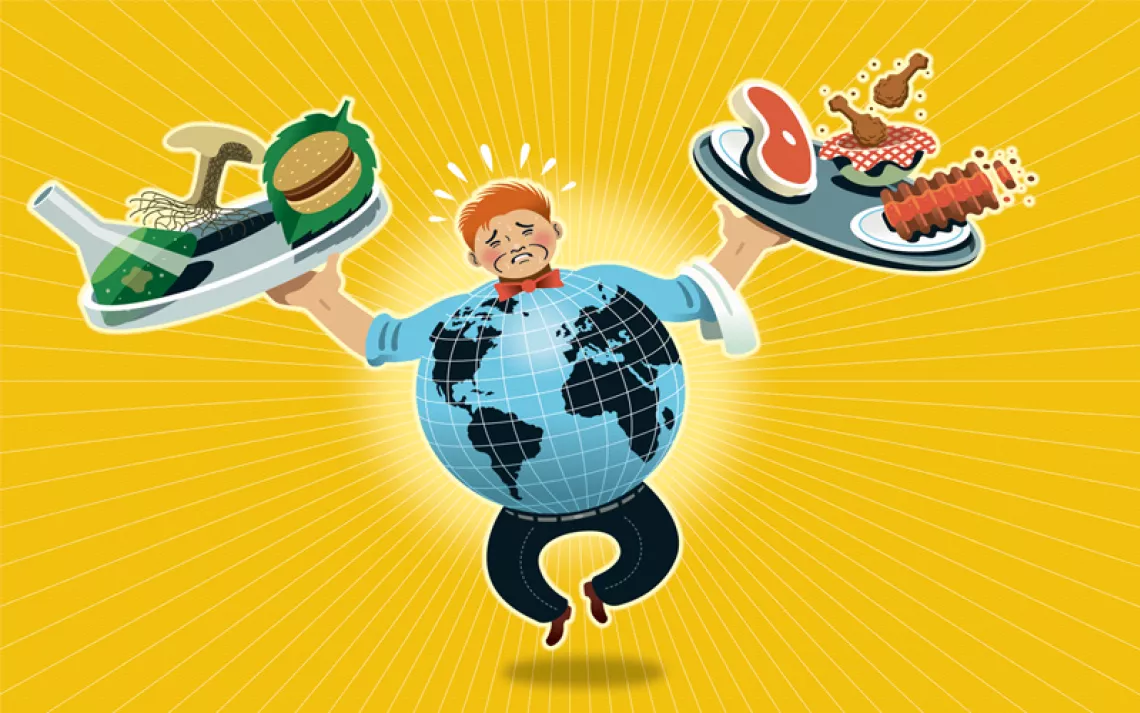Toward a Moral Case for Meat Eating
By consuming other animals, we can affirm our animal nature, drawing ourselves closer to the earth

Photo by ALLEKO/iStock
I once experimented with vegetarianism for a couple of years. When people asked my reason for forgoing meat, I told them that while I had no problem with killing animals, I didn’t want to have to feed them. The line was too glib by half (I was a typically callow 20-something dude), but it got straight at one of the main concerns motivating vegetarians. Animal agriculture—or, I should emphasize, industrialized animal agriculture—has an outsized environmental impact compared to a plant-based diet. Ranching, especially in the developing world, often leads to deforestation that chews up wildlife habitat; growing animal feed requires large amounts of land and water that could be used more efficiently in the production of plant crops; and ruminants like cows, goats, and sheep emit heat-trapping methane that is about 80 times more powerful than CO2.
But the first part of my quip, I have no problem with killing animals, revealed an ugly ambivalence—if not apathy—about the morality of destroying another being to feed myself. It was, frankly, a lame dodge to a question that any meat-eater should, at some point, ask herself: What, if anything, can justify taking another animal’s life?
That question has been on my mind a lot this past season as we at Sierra magazine have been busy producing our most recent edition, which focuses on food and agriculture. As we report in our cover story, cattle ranching contributes to greenhouse gas emissions, despite the claims of some “holistic management” theorists that ranching can spur sufficient soil carbon sequestration to offset ruminants’ belching. In another story, we shed light on the environmental and public health impacts of North Carolina’s vast hog farms. Such exposés—certainly not the first or the last takedowns of animal agriculture—reaffirm the environmental importance of dramatically reducing animals from one’s diet.
There’s no shortage of thoughtful prescriptions for how to do so: Meatless Monday, the Reducetarian Solution, Vegan Before Six. These ideas, among many others, are strategies for harm reduction. They presume that meat is an evil, if a necessary evil. They offer little or no justification for continuing to eat meat, just prescriptions for eating less meat. The meat-reduction pledges seem to be saying, “All bad things in moderation—including moderation.”
Which has me wondering anew: Can meat actually be a good thing? Is there any way to make a moral case for eating animals?
♦
A couple of years ago, Nathanael Johnson, the food and agriculture writer at Grist, asked, “Where are the philosophers arguing that eating meat is moral?” After doing a pretty thorough lit review, interviewing some professional ethicists and the animal welfare guru Temple Grandin, and plumbing his own thoughts and feelings on the issue, Johnson pretty much came up empty-handed. If we acknowledge that eating animals will cause them some measure of pain, then it’s impossible to defend on a strictly ethical basis. Think of Kant’s categorical imperative, which says, “Act only according to that maxim whereby you can, at the same time, will that it should become a universal law.” Unless you’re willing to be kept, bred, and eventually slaughtered by a species of superior strength and/or intelligence, you can’t justify doing so to other species.
If you’ve spent any amount of time thinking about the morality of meat eating, you might have already come to this conclusion. And if you’re like 97 percent of Americans—including Johnson—you still eat meat. Isn’t this blatant hypocrisy? Not necessarily, according to ethicist Paul Thompson, the author of From Field to Fork: Farm Ethics for Everyone. Moral ideals are exactly that—ideals. Something we strive for. A Christian, for example, isn’t necessarily a bad Christian just because she doesn’t give away all of her worldly possessions to the poor. Charity doesn’t require asceticism.

Photo by cookedphotos/iStock
At the end of his piece, Johnson concludes that conscientious carnivores should support farms that prioritize animal welfare: “Let’s focus on giving farm animals a life worth living.” As I’ll detail below, I wholeheartedly agree. But the conclusion still felt unsatisfactory. I was left wanting to hear an argument for meat eating as an ethical good.
As Johnson noted, while it’s almost impossible to find a moral argument in favor of killing animals, it’s not at all hard to find compelling claims on the other side of the question.
More than 200 years ago, the English philosopher Jeremy Bentham established the intellectual foundation for considering animal rights, writing:
A full-grown horse or dog is beyond comparison a more rational, as well as more conversable animal, than an infant of a day or a week, or even a month, old. But suppose they were otherwise, what would it avail? The question is not, Can they reason? nor Can they talk, but Can they suffer?
In the 1970s, the Australian American philosopher Peter Singer took that argument to its logical conclusions with his book Animal Liberation, which laid out a sweeping ethical case against eating animals or using them as research subjects. “If a being suffers there can be no moral justification for refusing to take that suffering into consideration,” Singer wrote. More recently, the novelist Jonathan Safran Foer scored a critical and popular success with his nonfiction book Eating Animals, in which he talked to vegetarians and PETA activists and ranchers as he parsed what he calls our polarized food ethics. Like his intellectual predecessors, Safran Foer’s logic rested on the fact that animals suffer. “The most important part of definitions of or other reflections on suffering is not what they tell us about suffering—about neural pathways, nociceptors, prostaglandins, neuronal opioid receptors—but about who suffers and how much suffering should matter,” Safran Foer writes.

Photo by kynny/iStock
In a nutshell: Animals feel pain; they suffer in ways similar to humans; and we humans, as moral animals, cannot in good conscience contribute to such pain.
There’s no sensible argument against the fact that animals can suffer. If you’ve ever accidentally stepped on a dog’s paw or a cat’s tail, the resulting yelp confirms as much. Any moral defense of meat eating, then, must confront and accept some level of animal suffering.
The question becomes, might the suffering that animals experience in the course of being sacrificed for human food contribute to some other social good? I think the answer is a conditional yes.
By eating animals, we can remind ourselves of our animal natures. That recognition of our corporeal reality—the fact that we are flesh and blood and bones and skin, each of us ever on the way to very likely an unpleasant end—can, like few other things, keep us connected to the living earth. Surely such a connection is vital in an age of increasing dislocation between human civilization and nonhuman nature. When we kill other animals for our sustenance—as long as we do so with careful moral consideration— it can reinforce our interdependence with other species, linking humans to the rest of nature. And that linkage is a social as well as a trans-species good.
By taking another animal’s life, we can attune ourselves to the laws of ecology, and the laws of the animal world of which we, as animals, are a part. Those laws state that everything is connected, and that there can be a harmonious balance in a natural food chain. Mindful meat eating plugs us into that chain and connects us to the fates of other living beings. Paradoxical as it might sound, the conscientious carnivore can reestablish our moral obligations to the other species with whom we share this planet. Meat eating can be an ecological good insofar as the act reaffirms an environmental ethics that places other species’ interests alongside human interests.
To be sure, there are other less lethal ways of hitching ourselves to nature. The mindful vegetarian can find a connection to nature through a sense of awe at the alchemy of photosynthesis. The vegan dog-lover creates an emotional bond to another species through companionship. But companionship isn’t the same as physical interdependence. The relationship between the shepherd and the sheep, for example, is based on reciprocal debts: It is an exchange in which the sheep receives security (and the possibility of a longer life, though one capped by slaughter) and the shepherd receives sustenance. This might be confirmation bias talking, but I think such a relationship goes deeper than the eating of a broccoli spear.
To eat meat is to consume the body of the world. It offers us a chance to remember that the animal kingdom runs on blood—the mountain lion preying on the deer, the coyote going after a hare, the bobcat pouncing on a field mouse— and that we, too, are part of that kingdom. What if we were to accept that pain is an inescapable part of being an animal? What if we were to fearlessly acknowledge our own mortality, and in doing so recognize that we share something essential with animals: death itself?
Though the name isn’t perfectly exact, you could call this Ecological Stoicism, or maybe Ecological Egalitarianism, to borrow from the deep ecologist Arne Naess. No matter the name, this ideal of environmental ethics rests on the proposition that more unites us with animals than separates us. All animals have an instinct toward a life worth living, all animals suffer, all animals ultimately die … and many kill, too.
A curious thing about some of the animal rights philosophy is that at times it seems to make equality into a one-way street. Near the beginning of Animal Liberation, Singer writes:
There are obviously important differences between humans and other animals, and these differences must give rise to some differences in the rights that each have. Recognizing this evident fact, however, is no barrier to the case for extending the basic principle of equality to nonhuman animals.
Extending the basic principle of equality. Implicit in that line is the idea that humans will raise other animals to the ethical plane we inhabit. Maybe we humans should stretch in the other direction and acknowledge that we are animals, too, driven in large part by instinct. Such an acknowledgement might prompt us to consider that our equality with other animals rests less on our shared ability to feel pain than on the common way in which we are driven by instincts.
Homo sapiens is a moral animal. According to some studies, so are chimpanzees and dolphins and elephants, insofar as they demonstrate altruism and overlapping and interlocking bonds of responsibility—a primitive system of ethics, if you will. Two of three of those aforementioned species are also meat-eaters.
My point here is that humans are animals every bit as much as we are moral beings—and that a strict animal rights philosophy may be counterproductive toward creating an environmental ethics. It may divorce us from our animal selves.
During one of the many illuminating interviews in Eating Animals, an anonymous animal rights activist says to Safran Foer:
This is what we feel like eating. Tell me something: Why is taste, the crudest of our senses, exempted from the ethical rules that govern our other senses?
For this individual, “what we feel” evidently isn’t worth all that much. While the ethical rigor is impressive, such disembodied abstraction carries its own risk. The logic of animal liberation may be airtight, but it might come at the cost of further alienating humans from other species.
The unresolved tension of a strict animal rights philosophy is that, by severing us from our instincts, it separates us from our animal cousins. Animal liberation rests on an idea of human exceptionalism—man as moral paragon, untethered from the muck of the earth. It’s true—a human can live without eating animals. But it’s very hard for most people to do, no doubt because it runs so counter to basic urges.
There are, of course, a great many animals that are purely herbivores. We are not one of them. Evolutionary biology informs us that human development was spurred, in part, by the beginning of meat eating. Meat sparked the leap from australopithecines to habilines to homo erectus. (The teeth in your head help confirm this.) Animal rights proponents would argue that humans, now endowed with an evolved moral sensibility, can leave that history behind. We could. But it also means leaving behind a good deal of what makes us what we are—animals at heart.
But still moral animals. So, then, what is required for meat to be ethically defensible?
♦
I want to be very clear: This attempt at a moral ideal of meat eating is not, in any way, a justification for causing wanton pain. While suffering is unavoidable, cruelty is intolerable.
Industrialized animal agriculture is depraved. The airless warehouses where only artificial light shines, the torturous confinement, the awful diets, the claustrophobic animal densities—it’s inexcusable. Worst of all—and this is what makes industrialized animal agriculture a crime—such callous treatment is unnecessary. Rather than drawing us closer to animals, industrialized meat further alienates us from those animals. Factory farms dematerialize the food on our plate.
But we don’t have to abuse animals in order to raise them. Today’s methods of animal agriculture, after all, are a huge departure from the last 10,000-plus years of animal agriculture. If the only choice before was either to eat meat from factory farms or to abstain altogether, then Singer and Safran Foer and the folks at PETA are right: The only ethical decision is to stop eating meat. But that isn’t the only choice. There is another route available to us, one that honors the sacrifice of animals and which respects animals’ instincts for a life worth living.

Photo courtesy of Dinner Bell Farm
Let me tell you a little bit about Dinner Bell Farm. Owned and operated by my good friends Molly Nakahara and Paul Glowaski, Dinner Bell is a small farm located in the foothills of the Sierra Nevada. For many years, they raised pastured chickens, in addition to growing organic vegetables and flowers. More recently, they have specialized in pig farming, heritage breeds like Mangalitsa and Mulefoot that aren’t offered a home in industrial farming systems. I go to Dinner Bell Farm as much as I can (which isn’t half as much as I’d like), and whenever I’m there I do some chores around the farm. What I have witnessed confirms for me the possibility of ethical meat eating.
When he’s not tending his own farm, Paul works as an organic inspector and also a certifier for Animal Welfare Approved, and he is scrupulous about ensuring that the animals at Dinner Bell Farm are treated humanely. The chickens and pigs at Dinner Bell spend their lives outdoors. The pastured chickens have plenty of space to roam around pecking and scuffing the soil, eating grass and grubs. The pigs split their time between a shady mixed woodland of oak and pine and a shady peach orchard. Molly and Paul always ensure there is a water source nearby to create a wallow so the pigs can laze in the mud. The pigs are free to root in the soil as much as they like. There’s no grotesque body modifications like tail crimping or nose rings, no gestation crates.
I have no idea what, exactly, makes a hog happy, but the Dinner Bell Farm pigs seem nothing if not content. “If you’re causing pain, there’s something wrong with the situation,” Paul says. “We want these animals to be engaging in behaviors that satiate them and fulfill them. We want to offer these animals an experience where they are fully pigged-out.”
Given the hogs’ diet—peaches and day-old bread that their human companions scavenge from area bakeries and spent malt from local breweries and whatever acorns they can glean—Dinner Bell Farm seems successful in that aspiration. No, the animals are not fully autonomous, as a vegan might wish; Paul and Molly move them around regularly to provide them the best pasture. But the animals enjoy agency—that is, the ability to follow to their evolutionary instincts. “We keep the boars together with the sows because, you know, they are a family and they want to live together,” Paul says.

The hogs at Dinner Bell Farm get to live a life that satisfies their instincts to roam and to root. | Photo courtesy of Dinner Bell Farm
Although Dinner Bell Farm could be mistaken for an animal sanctuary (Paul says that at least one neighbor, an avowed vegan, assumed as much after seeing pigs with such “bright eyes”), those chickens and hogs are destined to die. After those lazy days in the orchard, the Dinner Bell Farm pigs are transported to a slaughterhouse in Petaluma, California, owned by Marin Sun Farms, another California ranch committed to the highest standards of sustainability and the humane treatment of animals. I’ve never been to the Petaluma slaughterhouse, but I know that it has been certified by Animal Welfare Approved. A couple of times I’ve hung out with the owner, Dave Evans, and I know that he is passionate about animal welfare. From what Paul tells me, the animals that enter there experience no pain upon death. They are dispatched with what’s called the stun-kill method—a hammer to the head before the knife to the throat, the mind going dark in advance of the bloody work.
For the pig, that’s the end. I imagine it’s horrifying; every mammal must suffer some fear at the ultimate moment. Yet the well-treated pig might have it easier than most humans. I, for one, would prefer an electroshock-hammer aimed at the third eye to wasting away from cancer, or lung disease, or liver failure, or any of the other wretched maladies connected to industrial pollution.
Any animal’s best hope is to experience a life well lived. Paul and Molly provide such a life to their pigs and chickens through their commitment to true animal husbandry. That is, something approaching a spousal relationship, an interdependence based on shared interest and some kind of mutual respect. “I can’t make a moral argument for eating meat. I can only speak to the ethic of why we raise them like we do,” Paul says. “We feel a lot of responsibility to them because they chose to live with us.”
There are about 45,000 species of birds, fish, and mammals on Earth. We have domesticated some 45 of them. They chose us as much as we chose them, Paul argues, striking a grand bargain in which we provide to them food and safety, and they, in turn, eventually become our food. The fates of humans and domesticated animals have been hitched together for as long as we can remember.
The Chinese character for “family” or “home” (jia) is a pig under a roof. Let that sink in. When humans committed to sharing our lives with other animals (and they with us), we invited them into our circle of concern, and in the process created an interspecies family.
♦
I admit that mindful meat eating is incredibly difficult, in the same way that mindfulness in general is difficult: It’s hard to approach any given moment with a high intentionality quotient. I would be lying if I were to claim that with every bite of meat I engage in a meditation on mortality.
Nevertheless, I strive to approach meat eating with the kind of moral consideration that Peter Singer asks of us. Luckily (for me, at least), in the San Francisco Bay Area where I live, there are plenty of opportunities to purchase meat that has been humanely raised and slaughtered. I buy most of my meat from Marin Sun Farm and a local sustainable and human butcher called Clove and Hoof. I try my best not to eat meat whose origins are unknown to me, opting for the vegetarian choices on the menu. I remind myself that meat eating should be a treat, not a daily act. As Molly Nakahara says, “The meat you get from Dinner Bell Farm is a special thing that you share with your family on Sundays. We’d prefer that people ate less meat but valued it more.”
I’m not perfect, though. Sometimes instinctive urges overcome moral ambition. The flesh is weak when it comes to meat, and at times I find the siren song of the pulled pork sandwich at the grubby, down-home BBQ place too strong to resist. I can’t help but think of St. Augustine’s famous one-liner about the difficulties of virtue: “Grant me chastity … but not yet.”
In any case, it seems to me that the struggle itself—the very act of considering these questions—is part of the long, hard process of making meat eating morally defensible. At the very least, the struggle forces us into intentionality. And such intentionality is the essential ingredient to eventually making an ethical hot dog.
Safran Foer would probably critique that as a cop-out. In Eating Animals he writes:
A good number of people seem to be tempted to continue supporting factory farms while also buying meat outside that system when it is available. That’s nice. But if it is as far as our moral imaginations can stretch, then it’s hard to be optimistic about the future.
He is skeptical about whether humanely raised meat offers any real, scalable solution to the moral dilemma of meat eating:
There isn’t enough nonfactory chicken produced in America to feed the population of Staten Island, and not enough nonfactory pork to serve New York City, let along the country. Ethical meat is a promissory note, not a reality.
And he makes the smart observation that the vegan community and the mindful ranchers are often talking past one another: While the latter is interested in animal welfare, the former is making a claim for animal rights.
In some ways, Safran Foer is right. Three hundred million Americans can’t all eat ethically. The infrastructure just isn’t there yet, and today’s global, capitalist food system makes it all but impossible for small farms like Dinner Bell to survive economically (a different story for another day). But Safran Foer’s objection makes the perfect the enemy of the good, and it fails to appreciate that any progress has to start somewhere. Even if only, say, 3 million people are able to be conscientious carnivores today, that’s the first step toward 30 million being able to do so, and eventually 300 million.
As for animal rights versus animal welfare, I would argue that while every creature deserves the respect of a humane death, no animal has the right to live forever. Humans included. We, too, will end up as worm food, the cycle of life and death turning once more. I can’t imagine a better end than having my ashes dumped in the compost pile, so that my bones might feed the soil that helps feed my family.
If you find such a thought uncomfortable, then good. Mindful meat eating forces us to remember that we, too—despite all of our rational powers and moral capacities—will eventually pass away. Through the commonality of death, we reaffirm our kinship with the other animals on Earth.
 The Magazine of The Sierra Club
The Magazine of The Sierra Club



